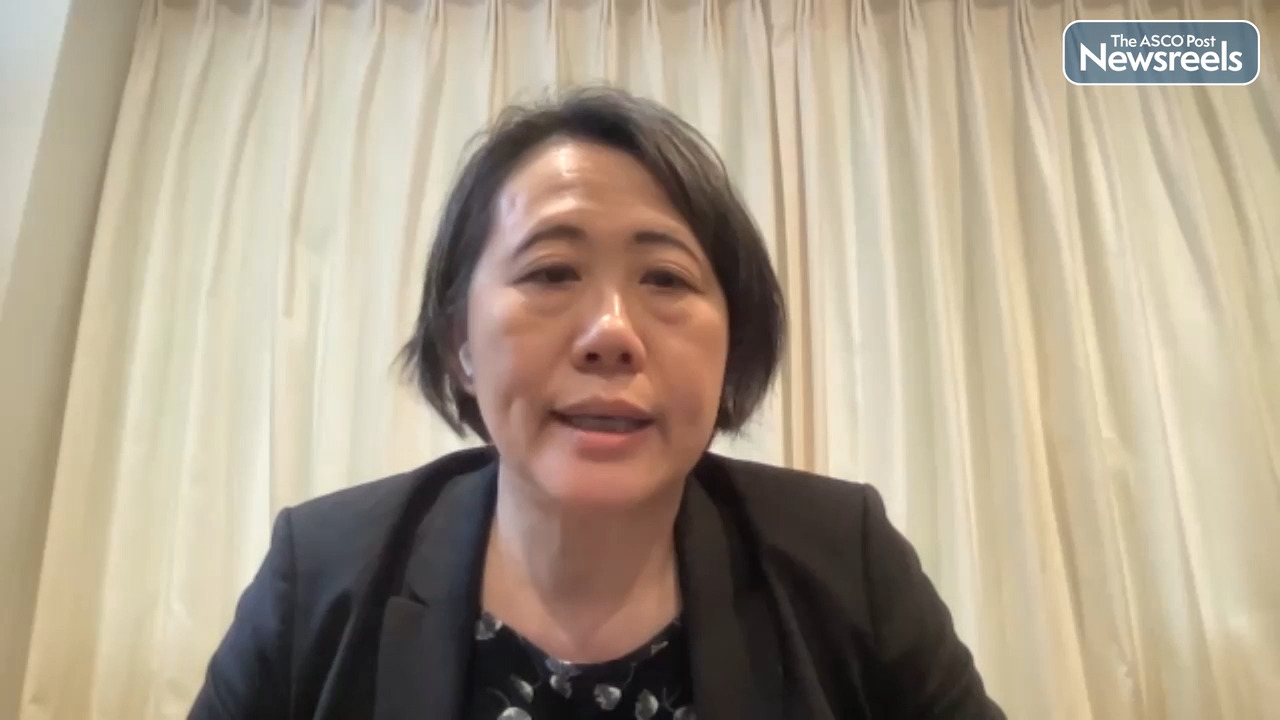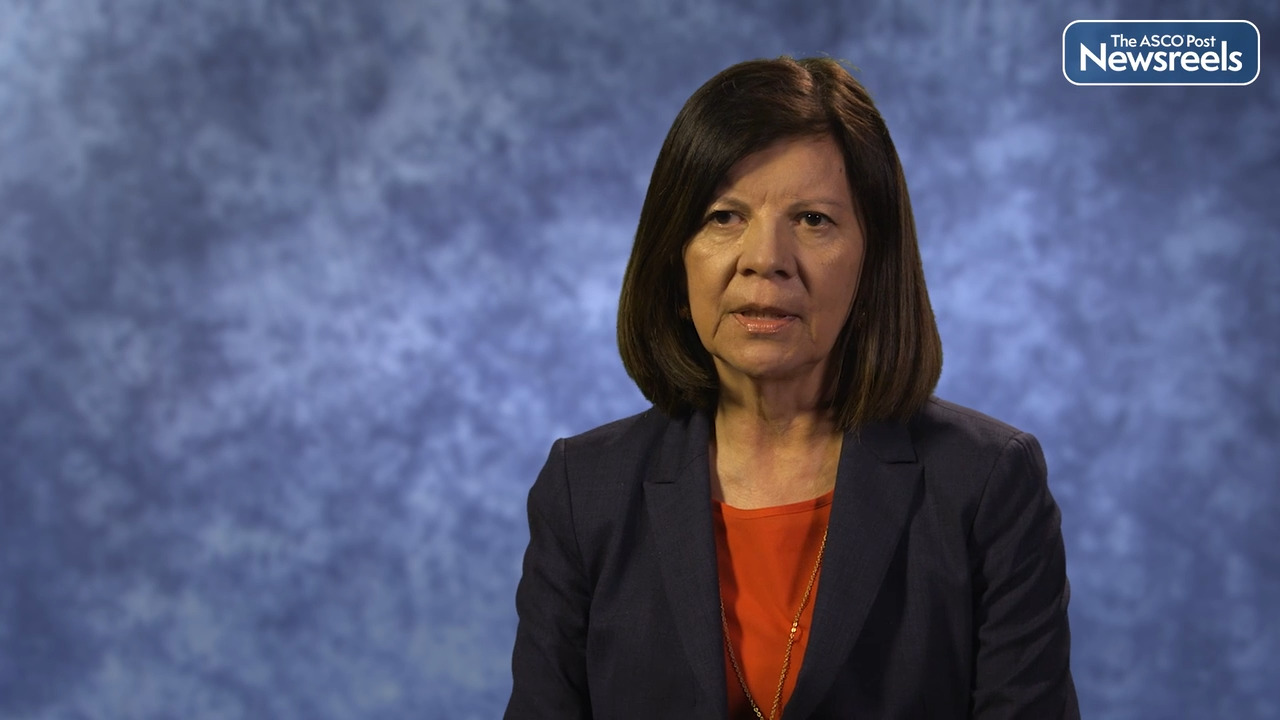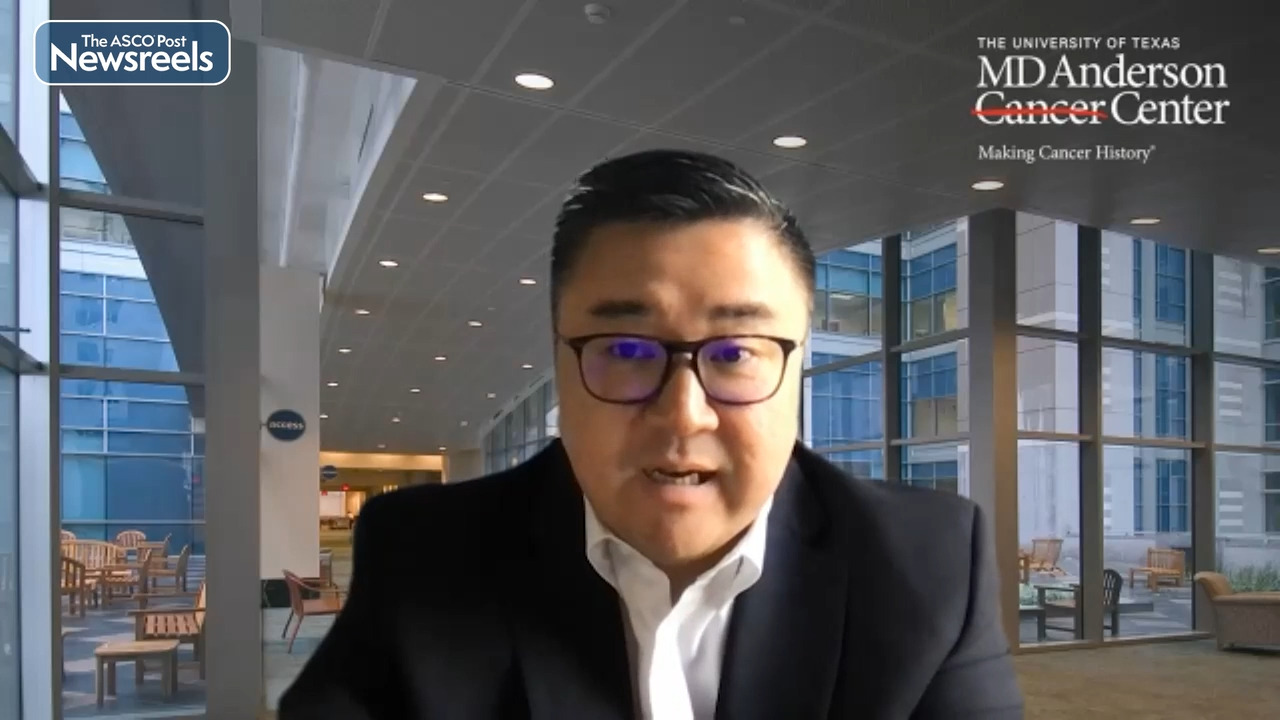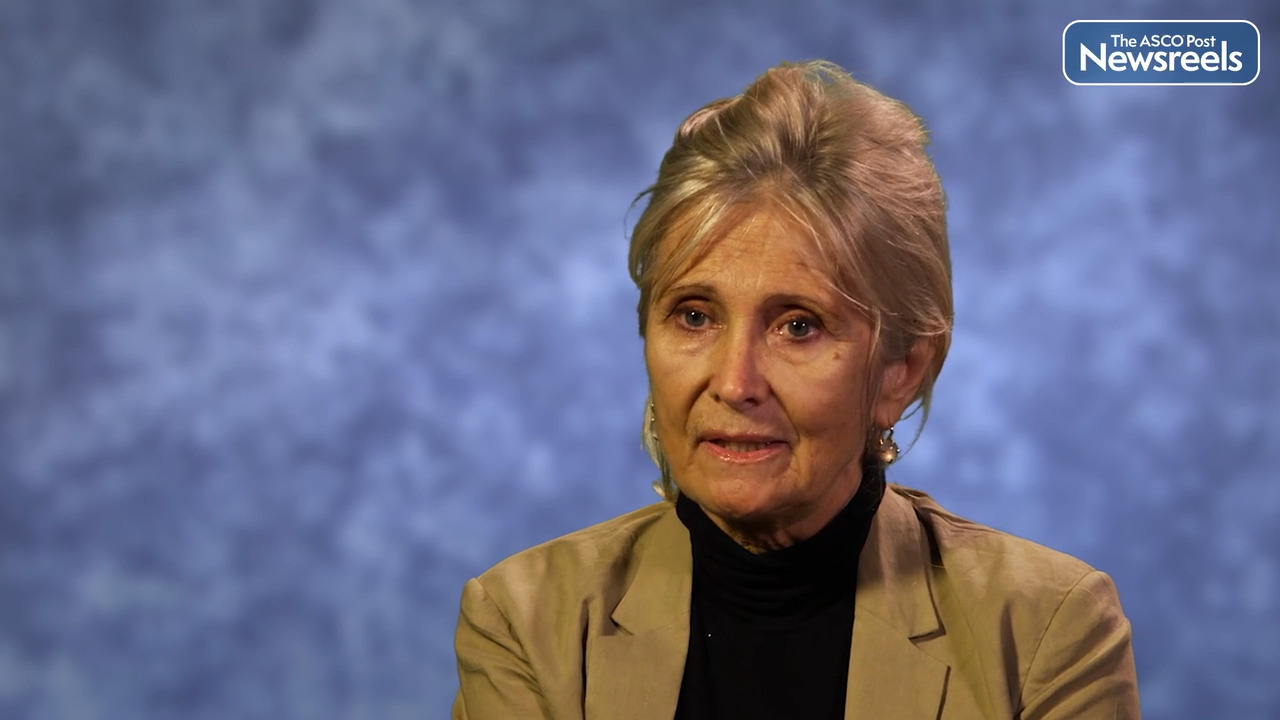Benoit You, MD, PhD, on Endometrial Cancer: New Data on Combining Olaparib, Cyclophosphamide, and Metformin
AACR Annual Meeting 2022
Benoit You, MD, PhD, of the Lyon University Hospital (France), discusses phase I/II safety and efficacy results from the ENDOLA trial that combined olaparib with metronomic cyclophosphamide and metformin in patients with advanced pretreated endometrial cancer. At 10 weeks, the non–disease progression rate was 61.5%, reaching the primary endpoint of the study. Median progression-free survival was 5.1 months. Research on biomarkers of efficacy is ongoing (Abstract CT005).
Related Videos
The ASCO Post Staff
Lillian L. Siu, MD, of Canada’s Princess Margaret Cancer Centre, discusses biomarker-driven precision cancer medicine, the optimal sequencing of immunotherapy (IO) with standard treatments in curative settings, IO targets beyond PD-1/PD-L1 and combinatorial strategies, and next-generation adoptive cell therapies (Abstract PL06).
The ASCO Post Staff
Maria Elena Martinez, PhD, MPH, of the University of California, San Diego Moores Cancer Center, provides an overview of the key components of the Accelerating Colorectal Cancer Screening and Follow-up through Implementation Science program, challenges posed by the COVID-19 pandemic, and opportunities for overcoming these challenges. Although screening and follow-up may reduce the incidence of and mortality from colorectal cancer, these disparities persist in medically underserved populations (Abstract SY30).
The ASCO Post Staff
Christine A. Iacobuzio-Donahue, MD, PhD, of Memorial Sloan Kettering Cancer Center, discusses her research on the evolutionary features of advanced stage pancreatic cancers and the insights that may be used to help improve patient outcomes (Abstract PL05).
The ASCO Post Staff
Timothy A. Yap, MBBS, PhD, of The University of Texas MD Anderson Cancer Center, discusses results from the PETRA study, a first-in-class, first-in-human trial of the next-generation PARP1-selective inhibitor AZD5305 in patients with BRCA1/2, PALB2, or RAD51C/D mutations in advanced or metastatic ovarian cancer, HER2-negative breast cancer, pancreatic, or prostate cancer. Target engagement was demonstrated across all dose levels, and antitumor activity was observed in selected tumor and molecular subtypes.
The ASCO Post Staff
Silvia C. Formenti, MD, of Weill Cornell Medicine, discusses research on the best way to integrate radiotherapy with immune modifiers, which might require changes in standard radiation oncology practices. Variables such as the type of treatment fields, the inclusion of draining nodal stations, the degree of exposure of circulating immune cells, the type of dose fractionation, and the timing of radiotherapy during immune checkpoint blockade all can affect the success of immunoradiotherapy combinations (Abstract SY43).





